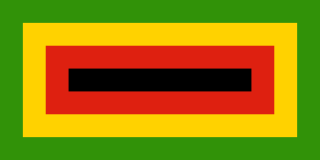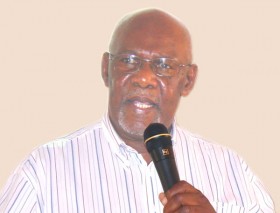Related Research Articles

Rhodesia, officially from 1970 the Republic of Rhodesia, was an unrecognised state in Southern Africa from 1965 to 1979. During this fourteen-year period, Rhodesia served as the de facto successor state to the British colony of Southern Rhodesia, and in 1980 it became modern day Zimbabwe.
The Gukurahundi was a series of mass killings and genocide in Zimbabwe which were committed from 1983 until the Unity Accord in 1987. The name derives from a Shona language term which loosely translates to "the early rain which washes away the chaff before the spring rains".

The Zimbabwe African National Union – Patriotic Front (ZANU–PF) is a political organisation which has been the ruling party of Zimbabwe since independence in 1980. The party was led for many years by Robert Mugabe, first as prime minister with the Zimbabwe African National Union (ZANU) and then as president from 1987 after the merger with the Zimbabwe African People's Union (ZAPU) and retaining the name ZANU–PF, until 2017, when he was removed as leader.

The Zimbabwe African National Union (ZANU) was a militant socialist organisation that fought against white-minority rule in Rhodesia, formed as a split from the Zimbabwe African People's Union (ZAPU) in 1963. ZANU split in 1975 into wings loyal to Robert Mugabe and Ndabaningi Sithole, later respectively called ZANU–PF and ZANU–Ndonga. These two sub-divisions ran separately at the 1980 general election, where ZANU–PF has been in power ever since, and ZANU–Ndonga a minor opposition party.

Joshua Mqabuko Nyongolo Nkomo was a Zimbabwean revolutionary and politician who served as Vice-President of Zimbabwe from 1990 until his death in 1999. He founded and led the Zimbabwe African People's Union (ZAPU) from 1961 until it merged in 1987 with Robert Mugabe's Zimbabwe African National Union (ZANU) to form ZANU–PF after an internal military crackdown called Gukurahundi in western Zimbabwe, mostly on ethnic Ndebele ZAPU supporters.

The Zimbabwe African People's Union (ZAPU) is a Zimbabwean political party. It is a militant communist organization and political party that campaigned for majority rule in Rhodesia, from its founding in 1961 until 1980. In 1987, it merged with the Zimbabwe African National Union-Patriotic Front.
Herbert Wiltshire Pfumaindini Chitepo was a Zimbabwean politician and nationalist leader who led the Zimbabwe African National Union (ZANU) until he was assassinated in March 1975. Although his assassin remains unidentified, the Rhodesian author Peter Stiff says that a former soldier of the British Special Air Service (SAS), Hugh Hind, was responsible.
The Nkomati Accord was a non-aggression pact signed on 16 March 1984 between the People's Republic of Mozambique and the Republic of South Africa. The event took place at the South African town of Komatipoort with the signatories being President of Mozambique Samora Machel and Prime Minister of South Africa P.W. Botha. The treaty's stated focus was on preventing Mozambique from supporting the African National Congress to undertake violent actions in South Africa, and for South Africa to stop supplying the RENAMO movement in Mozambique.
The 5th Brigade is an infantry brigade of the Zimbabwe National Army (ZNA). The 5th Brigade was created in 1981 from three former battalions of the Zimbabwe African National Liberation Army (ZANLA). It later incorporated over 3,000 ex-ZANLA guerrillas from various units. The brigade was based in Gweru and participated in the Mozambican Civil War as well as a genocide known as the Gukurahundi which targeted Ndebele civilians and Zimbabwe People's Revolutionary Army (ZIPRA) guerrillas.

The Rhodesian Bush War, also known as the Rhodesian Civil War, Second Chimurenga as well as the Zimbabwe War of Independence, was a civil conflict from July 1964 to December 1979 in the unrecognised country of Rhodesia.
The Northern Ndebele people are a Nguni ethnic group native to Southern Africa. Significant populations of native speakers of the Northern Ndebele language (siNdebele) are found in Zimbabwe and as amaZulu in South Africa. They differ from Southern Ndebele people who speak isiNdebele of KwaNdebele.

Zimbabwe People's Revolutionary Army (ZIPRA) was the military wing of the Zimbabwe African People's Union (ZAPU), a Marxist–Leninist political party in Rhodesia. It participated in the Rhodesian Bush War against white minority rule of Rhodesia. ZIPRA was formed during the 1960s by the nationalist leader Jason Moyo, the deputy of Joshua Nkomo.
Josiah Mushore Chinamano fought in the Second Liberation War as a guerrilla of the Zimbabwe African People's Union. He later served as the Minister of Transport.
James Robert Dambaza Chikerema served as the President of the Front for the Liberation of Zimbabwe. He changed his views on militant struggle in the late 1970s and supported the 'internal settlement', serving in the attempted power-sharing governments.
The Southern Rhodesia African National Congress (SRANC) was a political party active between 1957–1959 in Southern Rhodesia. Committed to the promotion of indigenous African welfare, it was the first fully fledged black nationalist organisation in the country. While short-lived — it was outlawed by the predominantly white minority government in 1959 — it marked the beginning of political action towards black majority rule in Southern Rhodesia, and was the original incarnation of the National Democratic Party (NDP); the Zimbabwe African People's Union (ZAPU); the Zimbabwe African National Union (ZANU); and the Zimbabwe African National Union — Patriotic Front (ZANU–PF), which has governed Zimbabwe continuously since 1980. Many political figures who later became prominent, including Robert Mugabe and Joshua Nkomo, were members of the SRANC.

Dumiso Dabengwa was a Zimbabwean politician. He served as the head of Zimbabwe People's Revolutionary Army (ZIPRA) intelligence during the Rhodesian Bush War.
Rodgers Alfred Nikita Mangena, born RodgersAlfred Mangena in the Maranda area, commanded the Zimbabwe People's Revolutionary Army (ZIPRA), the militant branch of the Zimbabwe African People's Union (ZAPU), in the Rhodesian Bush War. Lookout Masuku led ZIPRA after Mangena's death in 1978. He was born of Bakae Mangena and Keorabile Ngwenya, he was a Ndebele of Swati origin(Hlubi clan), his roots trace to the first swati people of Queen Nyamazane who settled in Zimbabwe after defeating the last Mambo of the Rozvi kingdom.

Air Rhodesia Flight 825 was a scheduled passenger flight that was shot down by the Zimbabwe People's Revolutionary Army (ZIPRA) on 3 September 1978, during the Rhodesian Bush War. The aircraft involved, a Vickers Viscount named the Hunyani, was flying the last leg of Air Rhodesia's regular scheduled service from Victoria Falls to the capital Salisbury, via the resort town of Kariba.

The Victoria Falls Conference took place on 26 August 1975 aboard a South African Railways train halfway across the Victoria Falls Bridge on the border between the unrecognised state of Rhodesia and Zambia. It was the culmination of the "détente" policy introduced and championed by B. J. Vorster, the Prime Minister of South Africa, which was then under apartheid and was attempting to improve its relations with the Frontline States to Rhodesia's north, west and east by helping to produce a settlement in Rhodesia. The participants in the conference were a delegation led by the Rhodesian Prime Minister Ian Smith on behalf of his government, and a nationalist delegation attending under the banner of Abel Muzorewa's African National Council (UANC), which for this conference also incorporated delegates from the Zimbabwe African National Union (ZANU), the Zimbabwe African People's Union (ZAPU) and the Front for the Liberation of Zimbabwe (FROLIZI). Vorster and the Zambian President Kenneth Kaunda acted as mediators in the conference, which was held on the border in an attempt to provide a venue both sides would accept as neutral.
The 1981 Entumbane uprising, also known as the Battle of Bulawayo or Entumbane II, occurred between 8 and 12 February 1981 in and around Bulawayo, Zimbabwe amid political tensions in the newly independent state. Zimbabwe People's Revolutionary Army (ZIPRA) guerrillas, mainly in the city's western suburb of Entumbane, rebelled, creating a situation that threatened to develop into a fresh civil war, barely a year after the end of the Bush War. The Rhodesian African Rifles (RAR) and other white-commanded elements of the former Rhodesian Security Forces, fighting for the Zimbabwean government as part of the new Zimbabwe National Army, put down the uprising. Groups of Zimbabwe African National Liberation Army (ZANLA) fighters attacked both ZIPRA and the government forces during the revolt, which followed a smaller outbreak of fighting between guerrillas in November 1980.
References
- ↑ The Zimbabwe African People's Union, 1961-87: A Political History of Insurgency in Southern Rhodesia, Eliakim M. Sibanda, Africa World Press, 2005, page 261
- ↑ Beggar Your Neighbours: Apartheid Power in Southern Africa, Joseph Hanlon, Indiana University Press, 1986, pages 180-182